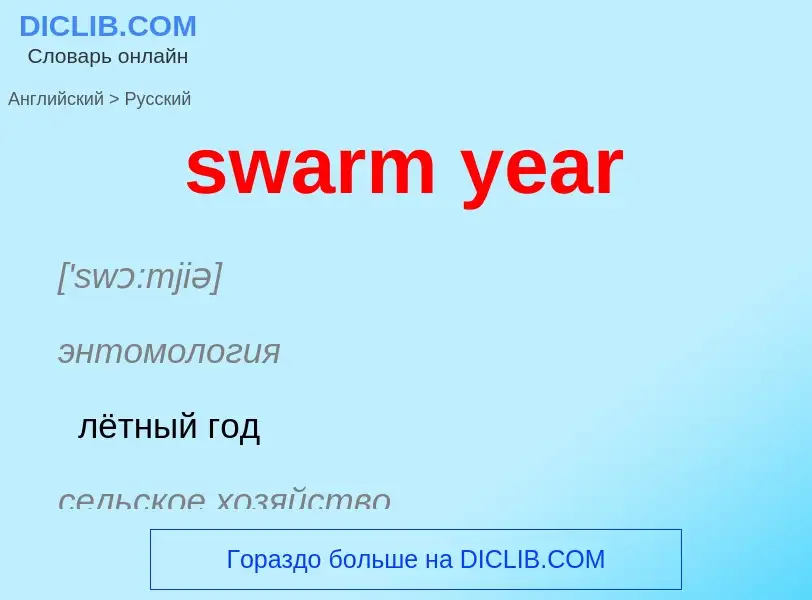ترجمة وتحليل الكلمات عن طريق الذكاء الاصطناعي ChatGPT
في هذه الصفحة يمكنك الحصول على تحليل مفصل لكلمة أو عبارة باستخدام أفضل تقنيات الذكاء الاصطناعي المتوفرة اليوم:
- كيف يتم استخدام الكلمة في اللغة
- تردد الكلمة
- ما إذا كانت الكلمة تستخدم في كثير من الأحيان في اللغة المنطوقة أو المكتوبة
- خيارات الترجمة إلى الروسية أو الإسبانية، على التوالي
- أمثلة على استخدام الكلمة (عدة عبارات مع الترجمة)
- أصل الكلمة
swarm year - ترجمة إلى الروسية
['swɔ:mjiə]
энтомология
лётный год
сельское хозяйство
лётный год (саранчи и т. п.)
лётный год (саранчи и т. п.)
финансы
налоговый [фискальный] год (условный год, начало и конец которого определяются законодательно для целей налогообложения, т. е. 12-месячный период, за который предоставляется налоговая декларация и уплачивается подоходный налог или налог на прибыль; обычно не совпадает с календарным годом (напр., в Великобритании налоговый год начинается 6 апреля, а в СШа - 1 июля))
синоним
Смотрите также
تعريف
ويكيبيديا
Swarm intelligence (SI) is the collective behavior of decentralized, self-organized systems, natural or artificial. The concept is employed in work on artificial intelligence. The expression was introduced by Gerardo Beni and Jing Wang in 1989, in the context of cellular robotic systems.
SI systems consist typically of a population of simple agents or boids interacting locally with one another and with their environment. The inspiration often comes from nature, especially biological systems. The agents follow very simple rules, and although there is no centralized control structure dictating how individual agents should behave, local, and to a certain degree random, interactions between such agents lead to the emergence of "intelligent" global behavior, unknown to the individual agents. Examples of swarm intelligence in natural systems include ant colonies, bee colonies, bird flocking, hawks hunting, animal herding, bacterial growth, fish schooling and microbial intelligence.
The application of swarm principles to robots is called swarm robotics while swarm intelligence refers to the more general set of algorithms. Swarm prediction has been used in the context of forecasting problems. Similar approaches to those proposed for swarm robotics are considered for genetically modified organisms in synthetic collective intelligence.



